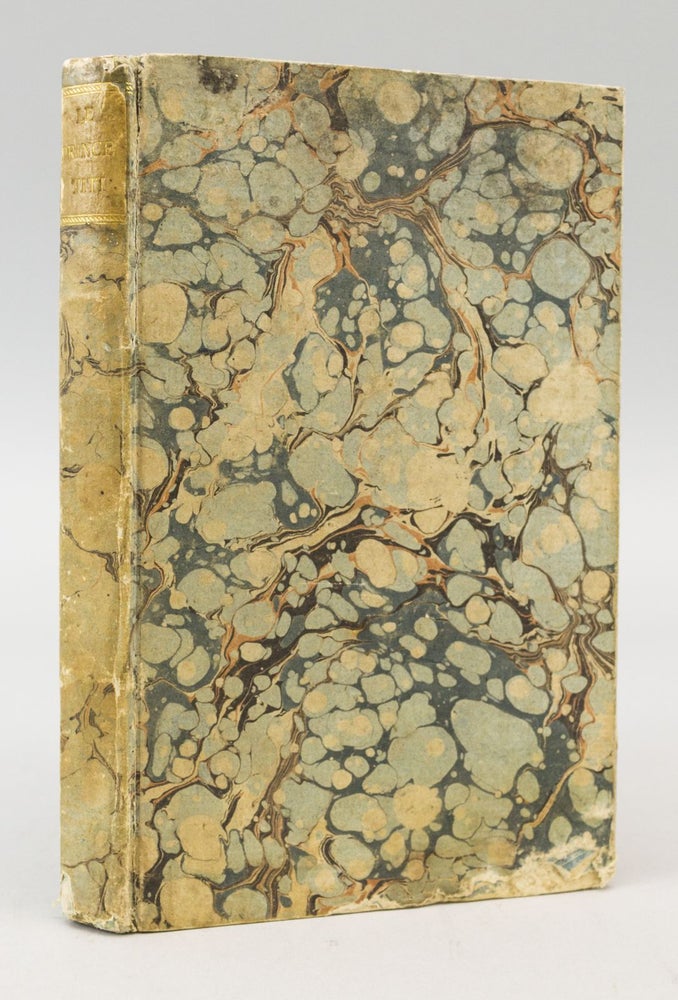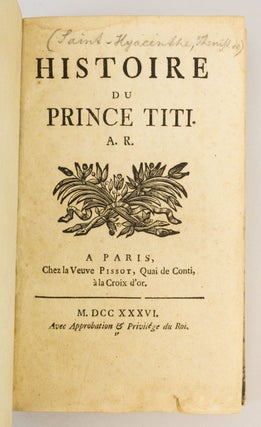HISTOIRE DU PRINCE TITI.
(Paris: Chez la Veuve Pissot, 1736). 165 x 102 mm. (6 1/2 x 4"). 4 p.l., 152 pp. FIRST EDITION.
Slightly later marbled paper boards, flat spine, paper label, marbled endpapers. Woodcut headpieces, tailpieces, and large ornament on title page. Front pastedown with traces of bookplate. First blank with round, illegible institutional stamp. ◆Marbled paper somewhat rubbed on lower edges and ends of spine, faint dampstaining in lower margin of first three gatherings (slightly frayed in the same spot on first few leaves), text a shade less than bright, but still an excellent copy, the binding solid and pleasing, and internally fresh and clean.
Saint-Hyacinthe (1684-1746), born Hyacinthe Cordonnier, did not have a smooth ride in life. He joined the French cavalry, using the sobriquet of Chevalier de Thémiseul, but was captured by the Dutch, and his ardor for the military life was consequently dampened. Subsequently, he tested his mettle as a womanizer, but this resulted in his banishment from France. The penniless Cordonnier then turned Protestant and transformed himself into the satirical writer Saint-Hyacinthe, living in Holland and England, where he quarreled bitterly with Voltaire. His "Historie du Prince Titi," written in the guise of a fairytale complete with a fairy godmother, Diamantine, was a satire on the English King George II and his wife Wilhelmina Caroline. The king and queen of the mythical realm are obvious heavies in the plot, while their son Titi is a paragon of virtue. Rumor attributed the book to the Prince of Wales Frederick Louis himself (1707-51), who was at odds with his parents in real life. History, however, has generally judged the fault to be at least equally on Frederick's side: in the book, as in life, the royal parents' chief crime apparently was the provision of too scanty an allowance. Two French versions of the work appeared in 1736, one in Belgium and the other being our Paris printing by the widow Pissot. (ST9087)
Price: $170.00


